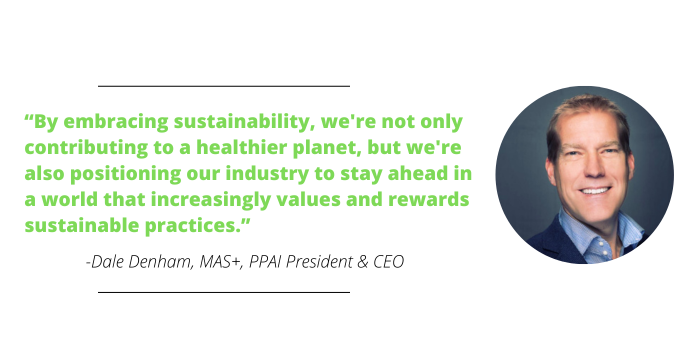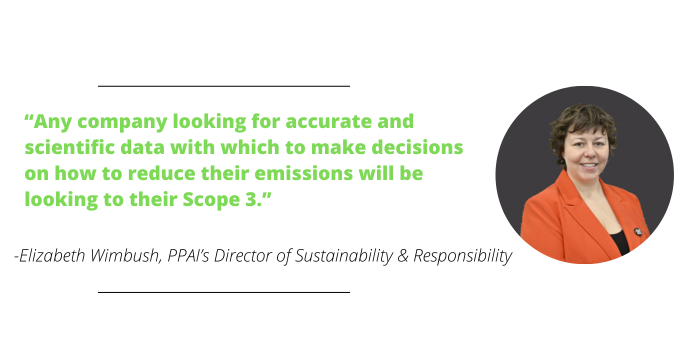New SEC Rules Require Greenhouse Gas Emissions Disclosures

Editor's Note: Within days of the new rules' announcement, the Fifth U.S. Circuit Court of Appeals granted a temporary stay of the regulations following a legal challenge by oil and gas company Liberty Energy Inc. and Nomad Proppant Services LLC. The court lifted its block on March 21 following the selection of the Eighth Circuit as the venue for consolidated suits about the agency's rules. Liberty Energy has since filed another complaint against the SEC in Texas federal court.
The U.S. Securities and Exchange Commission has adopted climate reporting rules that will require many publicly traded companies to disclose their greenhouse gas (GhG) emissions, highlighting sustainability’s growing importance to business operations and the bottom line.
The SEC’s rules require public companies to publish their Scope 1 and Scope 2 emissions.
- Scope 1: Direct emissions that occur from sources that are controlled or owned by an organization, such as a company’s machinery.
- Scope 2: Indirect emissions associated with the purchase of electricity, steam, heat or cooling.
However, the final rules don’t require publicly traded companies to disclose their Scope 3 emissions, which the Environmental Protection Agency (EPA) defines as the result of activities from assets not owned or controlled by the reporting company, but that the company indirectly affects in its value chains.
- Scope 3 includes the emissions from transporting and distributing products, employee commutes, business travel, etc.
“It's an attempt to set a standard for how companies communicate with investors about GhG emissions, weather-related risks and how they’re preparing for the transition to a low-carbon economy,” says Elizabeth Wimbush, director of sustainability and responsibility at PPAI. “In the past few years, it has become increasingly commonplace for investors to ask for full GhG emissions disclosure, including Scope 3. I suspect that will continue regardless of this ruling.”
What Companies Must Disclose
Although the rules don’t directly impact the majority of promotional products firms in the United States, they potentially serve as a bellwether with sustainability continuing to be a priority in the business world.
- Of course, it’s worth noting that the SEC’s rules aren’t officially a done deal, as they’re likely to be challenged in court.
“By embracing sustainability, we're not only contributing to a healthier planet, but we're also positioning our industry to stay ahead in a world that increasingly values and rewards sustainable practices,” says Dale Denham, MAS+, PPAI president and CEO.

The SEC’s final rules require registrants to make several disclosures, including:
- Climate-related risks that have had or are reasonably likely to have a material impact on the registrant’s business strategy, operations or financial condition.
- If, as part of its strategy, a registrant has undertaken activities to mitigate or adapt to a climate-related risk, it must publish a quantitative and qualitative description of expenditures incurred and impacts on financial estimates and assumptions that directly result from such mitigation or adaptation activities.
- Specified disclosures regarding a registrant’s activities, if any, to mitigate or adapt to a climate-related risk including the use, if any, of transition plans, scenario analysis or internal carbon prices.
- Any oversight by the board of directors of climate-related risks and any role by management in assessing and managing the registrant’s climate-related risks.
- Any processes the registrant has for identifying, assessing and managing climate-related risks and, if the registrant is managing those risks, whether and how any such processes are integrated into the registrant’s overall risk management system or processes.
- Information about a registrant’s climate-related targets or goals, if any, that have materially affected or are reasonably likely to materially affect the registrant’s business, results of operation, or financial condition.
Large accelerated filers (LAFs) and accelerated filers (AFs) that aren’t otherwise exempted must provide information about material Scope 1 emissions and/or Scope 2 emissions. For those required to disclose the emissions, an assurance report at the limited assurance level is also required.
Importance Of Scope 3 Reporting
Despite the SEC’s ruling, Wimbush argues that there’s still a need for promotional products companies, especially distributors, to report their Scope 3 emissions.
- Anywhere from 85%-95% of distributors’ emissions will be captured in Scope 3, according to Wimbush.
“Any company looking for accurate and scientific data with which to make decisions on how to reduce their emissions will be looking to their Scope 3,” she says.

“Additionally, there is a growing chorus of voices expressing the opinion that because Scope 3 is all measured downstream (customers) or upstream (suppliers), if Scope 1 and Scope 2 are being accurately measured by everyone involved in a value chain, then those emissions considered as Scope 3 would be accounted for.”
“This does require a drastic increase in the adoption of strict carbon accounting by everyone,” Wimbush adds, “so while we're not quite there yet, it's an interesting take.”

